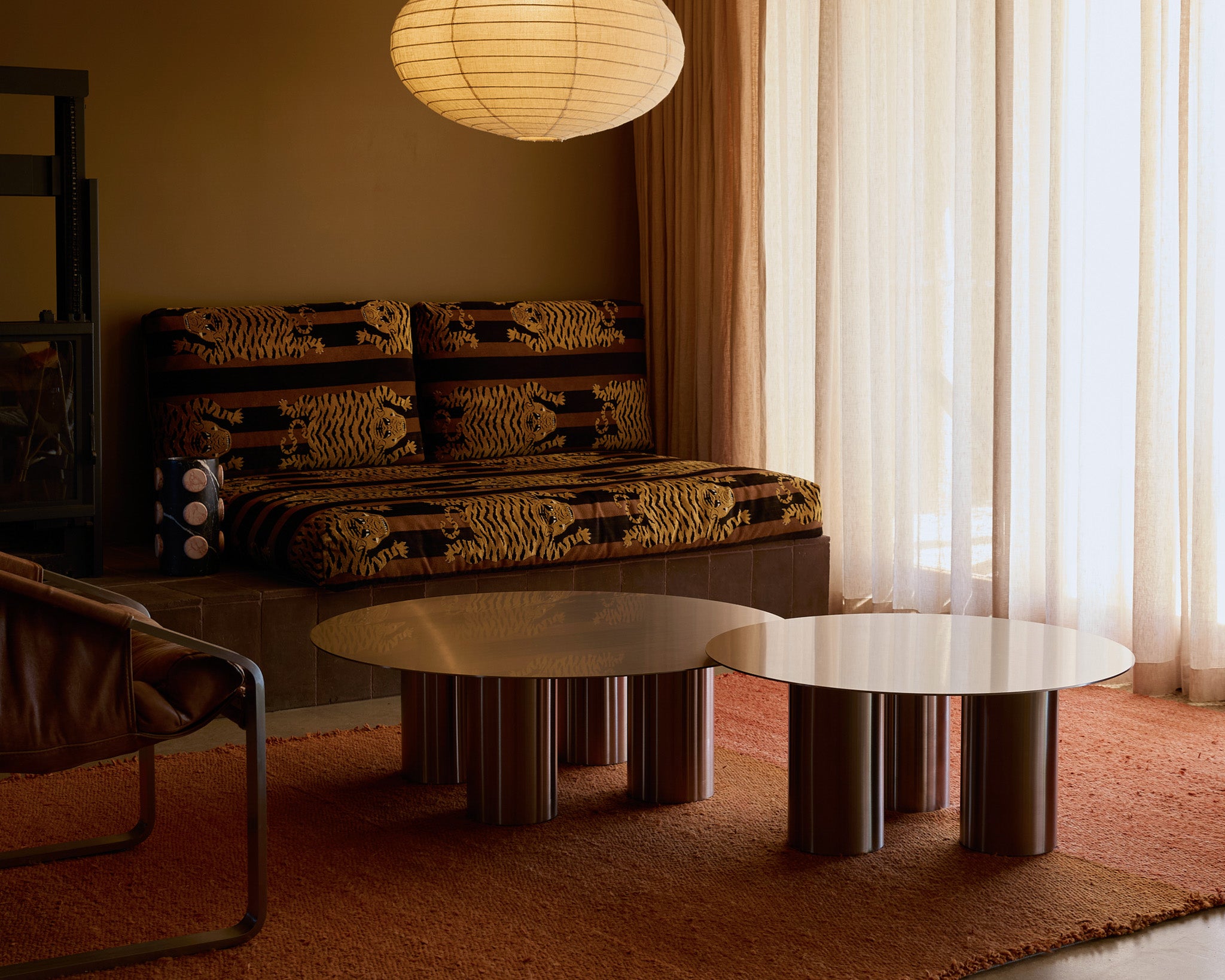Visiting the home of Carrara Marble

Whilst there, we were able to source some of the amazing Italian marbles such as Arabescato Corchia, Carrara Bianco and Calcutta Viola but this only makes up about 15% of our natural stone collection. In fact, there are thousands of different natural stones from around the globe to choose from.
For this new collection it was important that we curated stones that were timeless in both colour, texture and quality.
We want to be transparent with you about the products we have designed including the stone origins, where they are made and what our ethics are whilst in production so we’ve shared a bit about this below.
Listed alphabetically, below is a list of our stones and the origins;
Arabescato Corchia: Northern Tuscany, Italy
Carrara Bianco: Northern Tuscany, Italy
Calcutta Viola: Northern Tuscany, Italy
Light Cream Travertine: Turkey, also parts of Italy
Dark Emperador: Murcia, Spain
Green Onyx: India
Green Onyx ranges in colour from cloudy sage to vibrant green, most often with large brown veins throughout.
Persian Pink Onyx: Afghanistan and Iran
Pink onyx is the most expensive of all Onyx, costing around twice that of green onyx.
Nero Marquina: Spain & China
The Spanish Nero Marquina has larger white Veins than the Chinese stone which has fewer white veins.
Rosa Levanto: Spain, Turkey and Italy
Van Gogh Marble: Brazil
Verde Tinos: India
White Onyx: Iran
This is often known as Champagne Onyx.
The majority of our products are produced or finished in China, Italy and Australia where we are able to find the best manufacturers in skill, quality, process, ethics and affordability.
If we only cared about price, we would seek alternative East Asian countries where we cannot ensure ethics such as the modern day slavery act, child labour and product quality. Our makers have strict standards in fair work, workplace health & safety and meticulous production methods.
Quirky facts about marble
Whilst in Italy, we learned some interesting facts about quarrying stone. Firstly, every single part of marble is used, from small stones to the fine dust that’s produced whilst cutting the blocks.
If a slab cracks into smaller pieces or blocks, it’s used for smaller slabs or often made into items such as decorative objects.
The small stones that break off are used in Terrazzo products. This is actually why you see so much terrazzo around Italy, it was a way to repurpose disregarded materials and was very economical.
And finally, unlike man-made stones that have toxic characteristics, marble dust is an ultra-fine abrasive that is very high in calcium. It’s actually often used in toothpaste and other hygiene products where an ultra-fine abrasive is required or yoghurt or milk where additional calcium is needed.
This is getting pretty geeky but we thought it was fascinating stuff.

